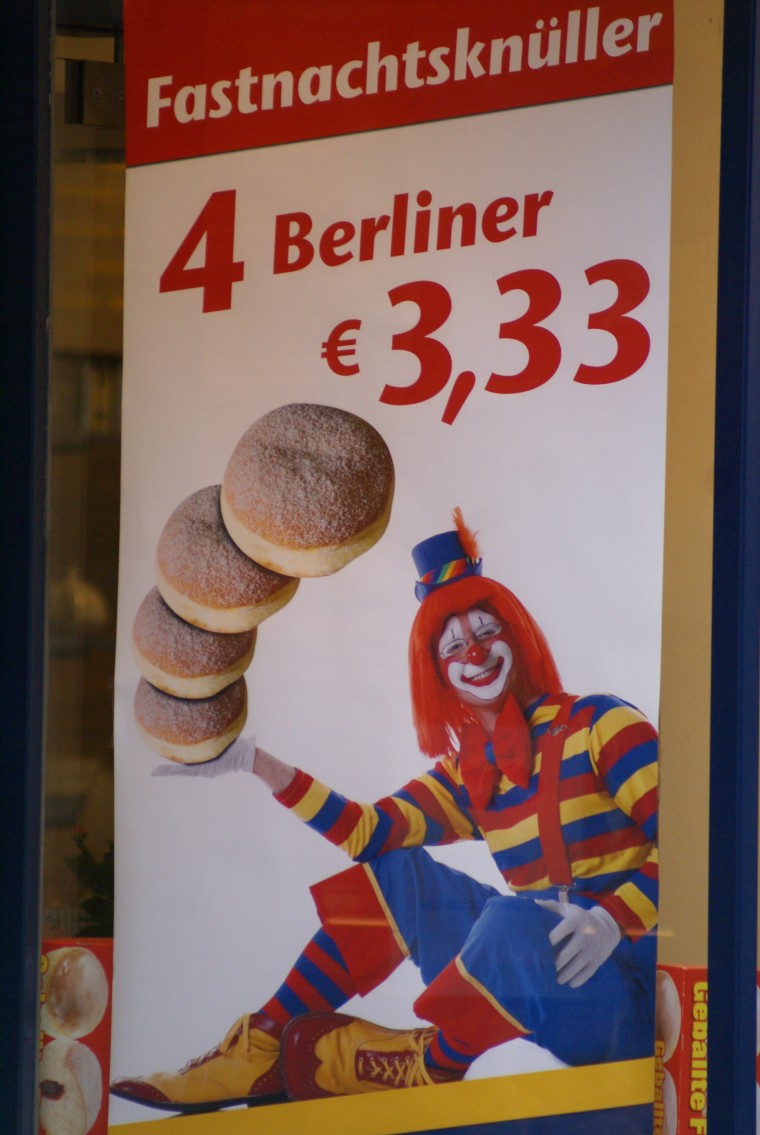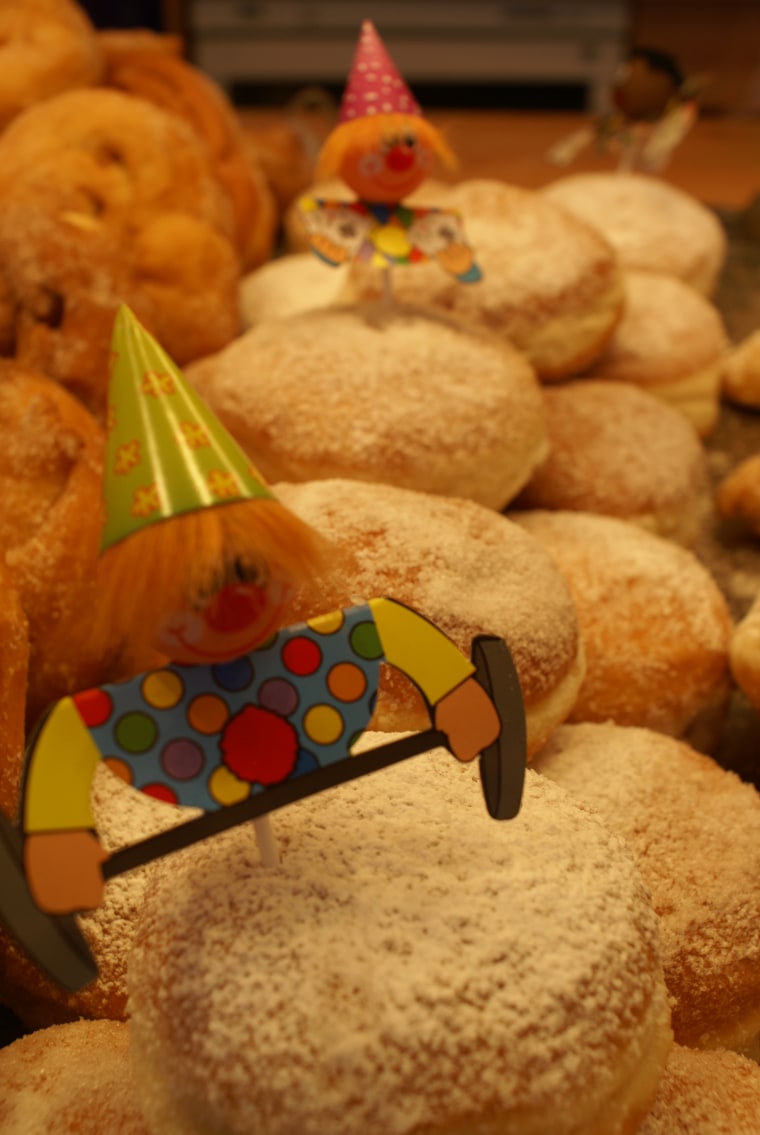
By Andy Eckardt
In Germany it‘s called the "Fifth Season," or simply the "crazy days." It's when ordinary, orderly, obedient and (some say) humorless Germans go wild and make total fools of themselves.
Carnival -- known as "Fasching" or "Fastnacht" in Germany -- is celebrated in various parts of the country, with many regional diversities in traditions, costume styles and favorite dishes.
The season officially starts on November 11 at 11:11 a.m. But the real party, with hundreds of thousands of “fools” dancing in the streets, takes place today, "Rose Monday" -- the Monday before Ash Wednesday.
In other words, it’s Germany’s answer to Mardi Gras. Chocolates, cookies, popcorn and the occasional bag of potato chips or another sponsored snack rain down from colorful floats onto cheering and chanting crowds. But the first thing that comes to mind when people here think of a sweet treat at carnival is the German doughnut.
Called Krepfel, Krapfen or Berliner, it’s a sugary yeast dough product, fried in oil, packing 300 calories per serving. It’s traditionally filled with berry or plum jam, but some bakeries offer special carnival versions with egg liqueur, pudding or chocolate inside. For those who want to prank a guest or friend, there are even “surprise” versions with mustard filling.
"People tend to eat greasy and solid food during Germany's carnival season," says Rosemarie Kolep of the German food magazine Essen & Trinken (“Eating and Drinking”). "Some want to enjoy a last heavy meal before the fasting time starts, while others simply try to prevent a hangover by eating food that helps to break down the alcohol," she explains.

But preferences in carnival foods vary by geography. Around the southwestern city of Offenburg, for example, a savory white bean soup can be found in nearly every bar or pub. Often it’s even available for breakfast after a long and crazy night out.
In the Swabian-Alemannic region, people crave Kutteln -- the omasum, or third stomach, of the cow, intensively cleaned, cut into small strips and then steamed in butter and onions. After cooking in a beef broth for 30 minutes, the dish is served in a tomato or white wine sauce. Kutteln has a long history, dating back to the ancient Greeks.
In contrast, in the Rhine valley, "our guests prefer the basic and traditional German dishes like fried veal meat in a bread crust, known as Schnitzel, or a large, spicy meatball, called Frikadelle," says Klaus Sinz, the cook at the Weinhaus Sinz, a family-owned restaurant in the quaint town of Wiesbaden-Frauenstein. "And toward the end of carnival, people here ask for fish -- either trout or often a very traditional herring dish."
Indeed, for many the carnival fun ends with a salty fish meal on Ash Wednesday, the beginning of Lent and the official start of the Christian fasting period that lasts until Easter. For many Germans, Lent marks an official "auf wiedersehen" to all the culinary sins of the winter season.